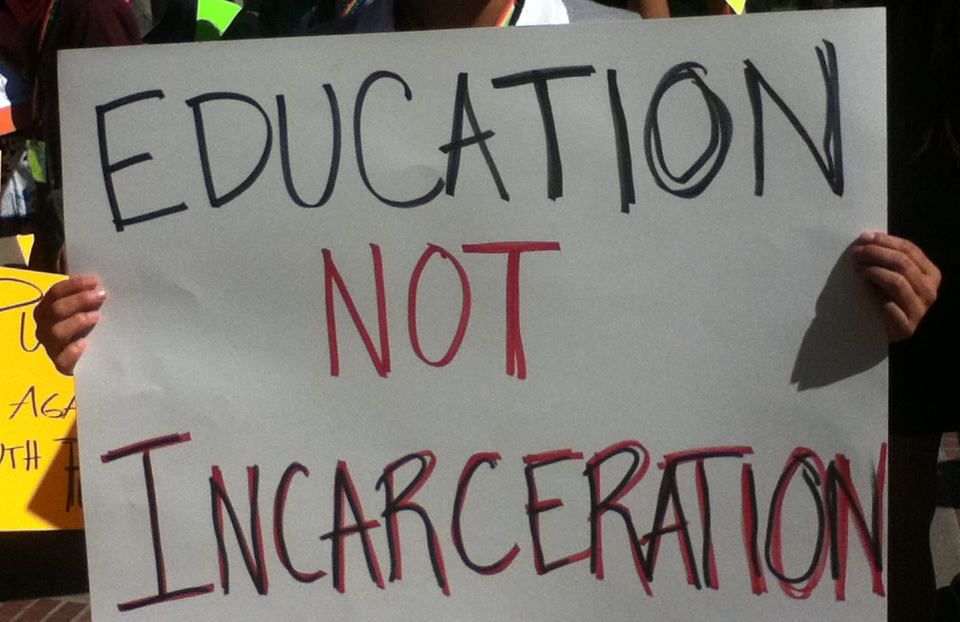This project was very rewarding because it exposed me to all of the efforts being made against the school-to-prison pipeline. Initially, I wanted to focus on a website that would exhibit resources to combat corporate-styled charter schools. However, while I was stuck during that project, I began to revisit areas of activism that I had strong interest towards. Although the school-to-prison pipeline area is a popular area of activism nowadays, it was an area of focus that closely related to me. As a large, black male, I understand the stigmatism towards people that share the same size and pigment as myself. Furthermore, this project really hit home when I thought about the life of my older brother. He grew up in a disjointed family, like myself, but never got the mentorship or opportunity to change his life around. So nowadays he’s just hopping in and out of the penitentiary system. Over the years, I never saw him as a naturally angry nor violent person. However, I was able to recognize how his response to his living conditions negatively affected his ability to prosper in primary and secondary level education. Therefore, I wanted to put effort towards this issue so that I can hopefully provide a resource for individuals who want to join this effort against our growing police state.
During my research, I noticed that although there were a few organizations that focused primarily on anti-pipeline efforts, the majority of the organizations addressed issues beyond incarceration. This realization spoke to me. This realization reaffirmed all that I had learned/ experienced in Urban Education this semester. Throughout the entire semester, our class focused on a multitude of social and activist issues. At first, I figured the class would end up being a quasi-sociology education course. But as I began to understand the approach of the professor, I realized that our class was just being exposed to a variety of facets that impact and exist within the realm of urban education. Therefore, during this journey, I realized that the anti-hypersecurity efforts within schools are great. But, the efforts that need more attention are the efforts directed toward improving the quality of life for urban students. Urban students need to feel safe not only in their homes, but in their learning spaces, as well. Too often, people observe and react to inner-city kids as hooligans and misfits, but they forget that the ‘kids’ are simply kids. Partly due to many racial and systematic power structures, many students from communities of color have unorthodox family trees and authority structures. Therefore, they’re going to respond in an academic environment with plenty of frustration and confusion. As mentioned in my peer-reviewed articles, teachers need to asses this particular area of issue with their students. Teachers need to be the first individuals to pause their curriculum or extend their schedule to further assist their students with appropriate mental and psychological means. Of course, teachers are incredibly busy, but they signed up for a job that requires plenty of investment besides creating curriculums and teaching concepts to students. Especially in urban communities, they need to understand the power they weld. If programs like the Freedom Schools program, from the Tyrone Howard’s article, continued to develop, it would foster and mend stronger relationships between parents and teachers; therefore, allowing teachers to gain some trust and connection with their urban students’ homes.
Ultimately, due to my increased interest in this area of activism, this project has convinced me to actively engage in anti-pipeline efforts. Although monetary donations would make a positive impact towards to restoration of a feasible relationship between communities of color and police forces, I will make more of a physical effort to attend events and lectures regarding this subject. As a large, black male, and after researching this area, I believe that I have a stronger call to mentorship and advocacy of students, particularly those who are from the city. At one point in my life, I was a young black boy who was very susceptible to negative paths in life, but such influences subsided once I received the appropriate parenting and mentorship. And although our current presidential administration is taking an problematic approach to this anti-pipeline effort, I believe that the people represented both in my grassroots list and throughout the cities of the country will overpower the efforts made by the government to derail our progress. Lastly, I hope that all Bowdoin students, regardless of their demographic identity, are able to continue their contribution to the change that we need to start seeing within urban education, even within the state of Maine.
